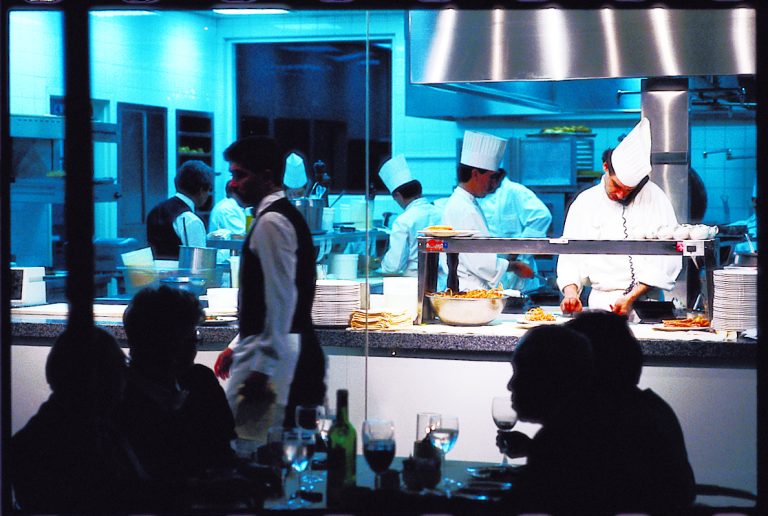“Is New York Too Expensive for Restaurateurs?” read the recent New York Times headline. What’s going on here? Are we about to experience a restaurant Armageddon? To read recent well-written and thoughtful stories in The New York Times and New York Post about the extremely challenging New York business environment for new and existing restaurants, one would think we are on the threshold of a cataclysmic event. Will our lives be mostly composed of delivered meal kits and food courts?

Well, skyrocketing rents are very problematic; the new labor laws and wage and hour policies are challenging; food and ingredient costs are never a bargain; and burdensome laws and regulations targeting food businesses appear in an endless stream.
Each of these is a serious issue on its own. Now add doing business in New York City with its unique issues and sprinkle in intense competition from the most restaurants per capita anywhere in the United States. The result makes you wonder why anyone would be in this business. Let’s open a dry cleaning business – it must be easier.
But wait. Is this the whole picture? Maybe there is still one hugely important critical piece missing from the story and it could tilt the balance between feast and famine: Do most owner/operators really know how to run their businesses? To be a popular chef or even a restaurant owner doesn’t necessarily mean someone really knows the “how-tos” of the business of restaurants. After all, in calm or even choppy waters, the restaurant business is challenging but doable.
Yet when the economic storms roll in, if you don’t really know the operating side of restaurants, there is no surviving. Read between the lines – all of the forces mentioned above (rents, higher wages, new laws and competition) are forces imposed from outside, tossing operators around like a ship in a storm. What’s missing here is what is going on inside the ship.
Does the captain know what he/she is doing? I was recently shown a space by a woman who is an experienced restaurant GM and budding restaurateur. It was a closed, fully built restaurant on a busy street on the Upper East Side of Manhattan. It could seat 40 guests plus a handful more at the tiny bar. She was in love with the space; it had the bones to become the cute café she had always dreamed of; it looked great and had a low investment and easy conversion; she even lived nearby.
Then I saw the rent — it was astronomical. It required strong, seven-figure sales to survive just the landlord. If she had signed, she might have lasted a year. She would have been working for the landlord, not herself. It would have been just the beginning of not knowing how.
As a former owner/operator myself and a long-time consultant and educator, I have had the incredible opportunity to see behind the curtain of some of the most respected and famous chefs and operators in America. I also have an army of students who, after learning the “how-tos,” have gone on to work at major and minor food businesses only to discover that many restaurants survive on magic and luck.
Words like recipes (knowing the true production cost of products), retailing (understanding the true purpose of your business), yields (how much is left to serve after trim and cooking), Q Factor (cost of the “free” items like bread basket, ketchup, mustard, etc.), and purchasing strategy (proper buying and receiving procedures) are unknown. I can name numerous celebrity chefs whose business acumen either doesn’t exist or is pushed to the side in the name of creativity. This doesn’t include those who play with the cash, and keep loose systems and accountability so as not to get caught.

This is not to say that the new wage laws, tip rules, rents, etc., aren’t major challenges. They definitely are. One celebrity chef recently noted in TheNew York Times that the way we operate now will not be the way we operate in the future.
Still, it’s amazing the number of operators and chefs I have seen who appear successful but are really marginally profitable or not profitable at all. Some don’t even know how much they make. They are simply marketers hoping that “volume covers all sins.”
When the going gets rough, it’s easy to look outside and blame everything else but yourself – especially when you may not know better. Is proper culinary education helpful? It certainly could be. In the words of a student who came to ICE already the owner of a successful restaurant, “After I graduated, I put to use what I learned and made a lot more money with no more effort.” But maybe more knowledge will definitely help some. It won’t relieve the pains of a bad lease signed too quickly.
But managing costs and maximizing revenues all present opportunities for change. It’s just knowing how. Are NYC restaurants in a challenging time? Definitely. The way we have operated in the past will probably not be the way of the future. Being a great operator will require knowing how to run a successful business.
Want to study restaurant & culinary management at ICE? Click here for more info.




